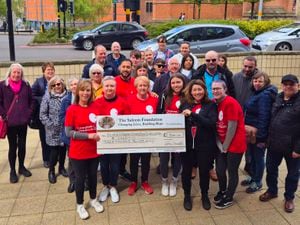Pay change for carers in Walsall sparks backlash
A controversial change to how carers are paid in Walsall has sparked uproar.

Carers who support elderly and vulnerable people in their homes will now be paid by the minute under changes due to come in next month.
Walsall Council said the policy was included in the current contract with domiciliary care providers in the borough, though it has not previously been implemented.
Previously, carers who were with a patient on a home visit for at least 23 minutes would be paid for the full half hour but that system is now being scrapped.
Providers say the change will result in carers being paid much less and it has been suggested the move could lead to protests and care firms cancelling work. They also said they had been given only a few weeks' notice of the changes, which are due to come into force on August 12.
One said the change would "destroy standards in homecare in Walsall".
The boss of another provider which has a contract with Walsall Council said: "We have already had carers leaving and other providers have had carers leaving. It will have a devastating effect on them and they are moving across councils to Wolverhampton, Stafford or Birmingham.
"Providing care for someone is not just about the process of going in and calling on someone, it's caring for their health and wellbeing. They might have to call a family member or district nurse."
"We are hoping Walsall Council are going to change their mind and re-think this unjust decision."
On the possibility of protests, she added: "I hope they will change their mind and come to a sensible solution but we are looking at all options.
"If they are doing this after 10 years at least give a decent consultation, not six weeks' notice. We can go and work with other councils."
Councillor Rose Martin, adult social care boss at Walsall Council, said: “Legislation states it is not appropriate for providers to receive public funds for care that is not delivered, or for those vulnerable people who contribute to their care to pay for services they have not received.”





